Nose Surgery in Abu Dhabi
Search and Compare the Best Clinics and Doctors at the Lowest Prices for Nose Surgery in Abu Dhabi

Find the best clinics for Nose Surgery in Abu Dhabi
With Medijump you can browse 4 facilities offering Nose Surgery procedures in Abu Dhabi. The cheapest price available is $3,112 in Abu Dhabi
Nose Surgery in United Arab Emirates
Price: $ 3,112
Nose Surgery in Abu Dhabi
Price: $ 3,112
Nose Surgery in Dubai
Price: $ 5,974
Poland offers the best prices Worldwide
Price: $ 101
From 136 verified reviews
Junaid Tehseen, 22 September 2020
Visited recently but I must say I experienced a true 5 star experience which I have never expected in a Hospital ,, I needed an assistant, Mr Shady Soleiman one of the manager in hospital met me assisted me with every thing and made my life so easy in a very difficult situation Thank you and every one
From 37 verified reviews
Mcjaydele Mclaine, 18 September 2020
I had a very positive experience with all of the Nurses and staff at Ahalia Hospital-Mussafah. I highly recommend Dr. Saumya my gynecologists she is very professional and amazing!
From 65 verified reviews
Mutasim Goraish, 06 September 2020
It's a good place and number one for the medical clinic in JCC it's like ahotea Clinic 😀
Al Salama Hospital, located in Al Zahiyah, Abu Dhabi, United Arab Emirates offers patients Nose Surgery procedures among its total of 98 available procedures, across 16 different specialties. The cost of a Nose Surgery procedure starts from ฿112,000, whilst the national average price is approximately ฿209,614. There are many specialists available at the Hospital, with 10 in total, and they are not accredited by any recognized accreditations institutes
- Home
- United Arab Emirates
- Abu Dhabi
Compare Before & After Photos of _procedure_photos.phpNose Surgery
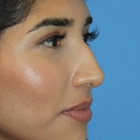
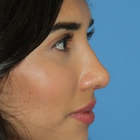
Full-side view
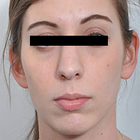
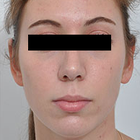
Front view
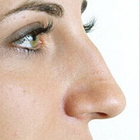
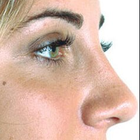
Full-side view
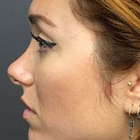
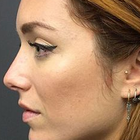
Full-side view
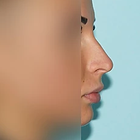
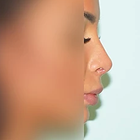
Full-side view
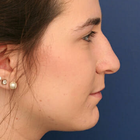
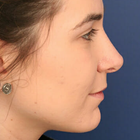
Full-side view
WHY US?
At Medijump, we're making medical easy. You can search, compare, discuss, and book your medical all in one place. We open the door to the best medical providers worldwide, saving you time and energy along the way, and it's all for FREE, no hidden fees, and no price markups guaranteed. So what are you waiting for?

Free

Best Price

Widest Selection

Risk-Free
What you need to know about Nose Surgery in Abu Dhabi
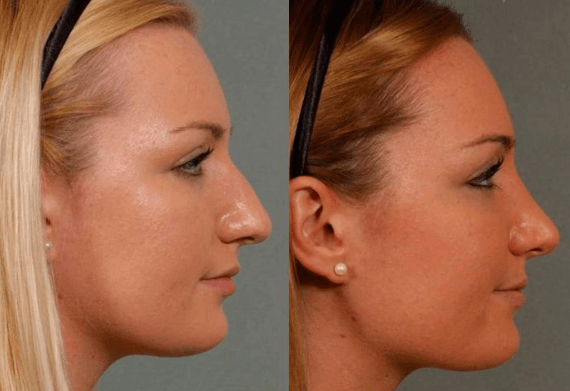
Commonly referred to as a Rhinoplasty, it is the medical term for reshaping of the nose or corrective surgery of the nose. It is one of the most common facial plastic surgeries (Facelift) procedures performed. Nose surgery can be performed to change the consequence of genetics, birth defect or nasal injury. It can be performed to enhance the appearance and/or to improve nasal breathing.
Surgery can be performed to correct nasal humps, the curvature of nose-bridge, nose tip irregularities, and asymmetry in the nostrils. The nasal appearance can be altered in various ways using intra-nasal chisels. Nose surgery procedures generally fall under three types: open rhinoplasty, closed rhinoplasty, and tip rhinoplasty. Rhinoplasty is normally performed under general anesthesia and will not leave any visible scars on the nose.
What does a Nose Surgery Procedure Involve?
Nose surgery is an individualized surgery. Before the surgery, you will need to discuss important factors with your surgeon to determine if it is suitable for you. Your surgeon will review your medical history, including your previous surgeries, medical conditions, and any medications you are taking. You will need to have a complete physical examination, such as blood tests. Your surgeon will also consider your other facial features, the skin on your nose, and what you would like to change or correct. Then, your surgeon will develop a customized plan for you. Two weeks before and after surgery, avoid any medications that contain aspirin or ibuprofen, such as Advil and Motrin IB because these medications can increase bleeding. You will need to also stop taking herbal remedies and over-the-counter supplements. If you are an active smoker, stop smoking because smoking can slow your healing process and increase the risk of getting an infection.
During the actual surgery, you will be given either local anesthesia or general anesthesia. The type of anesthesia depends on how complex the surgery is and what the surgeon would prefer to use. Then, the surgery will start by making incisions inside your nose or at the base of your nose between your nostrils. Your surgeon will reshape the inner bone and cartilage underneath your skin to make a more pleasing appearance.
There are several ways to change the shape of your nasal bones or cartilage, depending on your nose’s structure and how much needs to be removed or added. If only small changes are required, your surgeon may use cartilage taken from deeper inside your nose or your ear. However, for a much larger change, your surgeon may use cartilage from your rib, implants, or bone from other parts of your body. When the changes are finished, your surgeon will place the nose’s skin and tissue back. The incisions will be closed by stitches.
How Long Should I Stay in Abu Dhabi for a Nose Surgery Procedure?
If everything goes well, you can go back to your hotel on the same day once the effects of anesthesia wear off. However, you will need to stay in a recovery room for a few hours so the staff can monitor you. Some people may need to stay in hospital overnight. After you are discharged from the hospital, you will need to stay in Abu Dhabi for at least 10 to 14 days for initial recovery, follow-up checkups, and for the stitches to be removed.
What's the Recovery Time for Nose Surgery Procedures in Abu Dhabi?
The recovery period for nose surgery can be different from person to person. In general, 2 to 3 weeks is needed until you can get back to your full normal routine and 3 to 6 weeks until you can do any strenuous activity. However, you should be able to go back to work within a week, except if your job requires strenuous physical activity. You will feel gradually better each day in the first week. You will experience swelling, which can take six months to subside. The only people who will notice the swelling is you and your surgeon. Your final nose shape will be apparent after it is completely healed.
What sort of Aftercare is Required for Nose Surgery Procedures in Abu Dhabi?
After the surgery, you may need to wear a nasal splint for the first week. The splint is used to protect and support your nose. Your nose may be congested due to swelling or from the nasal splint. You need to rest in bed with your head raised higher than your chest to reduce bleeding and swelling. For a few days after the surgery, you may also experience slight bleeding and drainage of mucus. Your surgeon may place a “drip pad” under your nose to absorb drainage.
Your surgeon may ask you to avoid strenuous activity, take baths instead of showers, avoid blowing your nose, eat high-fiber foods to avoid constipation, not to do any facial expressions (smiling or laughing), not wearing pull clothing and wear button-downs instead.
For at least several weeks after the surgery, do not rest eyeglasses or sunglasses on your nose to prevent pressure. You should also wear SPF 30 sunscreen when you are outside because too much sun can cause permanent irregular discoloration to your nose. Do not put anything such as ice or cold packs on your nose even though it is swelling as the swelling will go away faster by limiting your dietary sodium.
What's the Success Rate of Nose Surgery Procedures in Abu Dhabi?
Nose surgery is known to have around 80% to 90% success rate. Nevertheless, just like any other surgery, it still has possible risks and complications. These risks are bleeding, infection, numbness, permanent nerve damage, and an adverse reaction to the anesthesia. You should call your surgeon immediately if you suspect any of the symptoms. Other possible risks are difficulty breathing through your nose, uneven-looking nose, persisting pain, swelling, and discoloration, scarring, septal perforation, and the need for a second or third surgery.
For an in-depth analysis of the closed rhinoplasty procedure with before and after images, watch this short video.
Are there Alternatives to Nose Surgery Procedures in Abu Dhabi?
If you do not want to undergo surgery, or if it is not suitable for you, you can get filler injections, such as Botox, Juvaderm, and Restylane. They can change the shape of your nose and only require a short visit to the doctor. This method is not painful and needs no incisions or stitches.
Whilst the information presented here has been accurately sourced and verified by a medical professional for its accuracy, it is still advised to consult with your doctor before pursuing a medical treatment at one of the listed medical providers
No Time?
Tell us what you're looking for and we'll reachout to the top clinics all at once
Enquire Now

Popular Procedures in Abu Dhabi
Prices Start From $404

Prices Start From $111

Prices Start From $70

Prices Start From $220

Prices Start From $1,945

Prices Start From $192

Prices Start From $500

Recommended Medical Centers in Abu Dhabi for Nose Surgery

- Interpreter services
- Translation service
- Religious facilities
- Medical records transfer
- Medical travel insurance
- Health insurance coordination
- TV in the room
- Safe in the room
- Phone in the room
- Private rooms for patients available

- Interpreter services
- Translation service
- Religious facilities
- Medical records transfer
- Medical travel insurance
- Health insurance coordination
- TV in the room
- Safe in the room
- Phone in the room
- Private rooms for patients available

- Interpreter services
- Translation service
- Religious facilities
- Medical records transfer
- Medical travel insurance
- Health insurance coordination
- TV in the room
- Safe in the room
- Phone in the room
- Private rooms for patients available

- Interpreter services
- Translation service
- Religious facilities
- Medical records transfer
- Medical travel insurance
- Health insurance coordination
- TV in the room
- Safe in the room
- Phone in the room
- Private rooms for patients available

- Interpreter services
- Translation service
- Religious facilities
- Medical records transfer
- Medical travel insurance
- Health insurance coordination
- TV in the room
- Safe in the room
- Phone in the room
- Private rooms for patients available

- Interpreter services
- Translation service
- Religious facilities
- Medical records transfer
- Medical travel insurance
- Health insurance coordination
- TV in the room
- Safe in the room
- Phone in the room
- Private rooms for patients available
Nose Surgery in and around Abu Dhabi
About Abu Dhabi
Abu Dhabi is the capital city of the United Arab Emirates and the richest city in the country due to its oil fields. Abu Dhabi is an advanced but conservative cosmopolitan city. In 2018, the city was ranked as the safest city in the world with the lowest crime index of more than 300 cities.
Culture, adventures, shopping malls, to coastal beauty; Abu Dhabi has a lot to offer that will leave anyone in awe. The city is filled with opulent architecture, making the skyline of Abu Dhabi a captivating view.
Abu Dhabi is now developing to be the region’s leading medical tourism destination. The government is working continuously to establish a world-class healthcare system. The city targets patients from other Gulf Cooperation Council (GCC) Countries, Russia, China, and other parts of the world. Attracting top-quality doctors and a range of specialist services, Abu Dhabi focuses its procedures on cardiology, oncology, and executive screenings. A total of 16 public and private hospitals in Abu Dhabi offer a wide range of medical treatment with quality care. Cleveland Clinic Abu Dhabi, Ahalia Hospital Musafahl, and Burjeel Hospital are among the highest-regarded medical facilities in the city. The city attracts many medical tourists for the following reasons.
- Medical facilities with the highest standards and international accreditations.
- Treatment using cutting-edge technology.
- Medical interpreters who speak a range of languages.
- The best hospitality, at the hospital, and throughout the city.
Popular Areas in Abu Dhabi
With a beautiful mixture of ultramodern architecture and Islamic traditions, Abu Dhabi is packed with amazing attractions and exhilarating adventure.
- Sheikh Zayed Grand Mosque is the United Arab Emirates’ largest place of worship that attracts millions of tourists each year. The mosque is an architectural wonder, mesmerizing even to the little details. Tourists can choose to get a free one-hour guided tour to get the best insight into the religion and culture that surrounds the mosque.
- Louvre Abu Dhabi is an art and civilization museum that has been open since 2017. The museum is showcasing artworks from around the world. Apart from the artwork, the architecture of the museum is also breathtaking with a web-patterned dome that allows sunshine to filter through.
- Al-Ain Oasis is a UNESCO World Heritage Site. The oasis has only been open to the public recently. It is full of palms and mango trees. Al-Ain Oasis is home to a 3000-year-old falaj irrigation system, the oasis provides an insight into the history of Abu Dhabi inhabitants.
- Ferrari World is the perfect place for tourists who want to celebrate all things, Ferrari. People come to this indoor theme park to experience Formula Rossa, the world’s fastest roller coaster.
- Abu Dhabi Corniche is a beautiful clean beach with great views of turquoise waters and Abu Dhabi skyline that will not disappoint. Tourists can enjoy a day under the sun lounging on the beach, walk along Corniche Road, or admire the sunset.
Weather and Climate in Abu Dhabi
Abu Dhabi has a subtropical climate. The city enjoys sunny skies and hot temperatures throughout the year. Summer starts from May to September and the average temperature ranges between 38–42°C. During the hottest days, the temperature can get as high as 48°C. Winter starts from December to February, the average temperature is around 13-29°C. Rain mainly falls in winter.
The best time to visit Abu Dhabi is from November to April when the temperature is cooler and more pleasant.
Despite the heat in the summer, it is advised to always wear modest clothing as the locals do not welcome revealing or tight clothing. Lightweight and comfortable clothing are suitable most of the year.
Getting Around in Abu Dhabi
Abu Dhabi International Airport serves more than 30 airlines that connect the city to more than 60 countries in the world. Etihad Airways dominates the airport terminal spaces. Abu Dhabi International Airport mainly serves major airlines, although budget airlines such as Airblue Limited and IndiGo also operate flights.
Tourists can choose the airport taxis, buses, or hire a car to get to their destinations from the airport. Airport taxis cost around 75AED to 85AED for a trip to the city center. If you want to take the airport bus, purchase a Hafilat card from the vending machine at the airport terminal bus stop.
There are many ways to get around Abu Dhabi. Taxis are relatively cheap and metered; tourists can flag down the taxis or order through a call center. Abu Dhabi also has a city bus that operates on 14 routes between 6.00 am to 11.00 pm, most fares are 2AED. Hiring a car can be a good way of getting to many destinations as it offers more flexibility. If you’re in Corniche or Yas Island, hiring a bike is the best choice to explore these Islands.
The ever-changing street names and numbering system can be confusing, so it is advisable to describe the landmark you are looking for.
Tourist Visas in Abu Dhabi
Citizens of 60 countries can get a free entry visa (30 or 90 days depending on the country) upon arrival. Gulf Cooperation Council (GCC) citizens do not require a visa to enter Abu Dhabi. Citizens of other countries need to apply for a visa before entering Abu Dhabi through the nearest UAE embassy.
Tourists flying with Etihad Airways to Abu Dhabi International Airport can request a visa arrangement. All visitors are required to hold a passport valid for at least 6 months.
Additional Information
- Local Currency: The local currency is the United Arab Emirates dirham or Emirati Dirham (AED). 1 USD gets you around 3.7 AED. The notes are written in Arabic letters.
- Money & Payments: ATMs and currency exchanges are available across the city. Hotels, restaurants, and shops accept credit cards, debit cards, and cash. Tipping is common, but not expected. Tipping a hotel and restaurant staff is at your discretion. Many high-end restaurants may add a service charge of around 10% and a tourism levy of around 6%.
- Local Language: Arabic is the official language, but English is widely spoken especially in the city center. Road and shop signs are written in Arabic and English.
- Local Culture and Religion: The culture in Abu Dhabi is deeply rooted in Arabia’s Islamic Tradition. Islam is the official religion but people can freely practice their religion as long as they don’t interfere with Islam.
- Public Holidays: Ramadhan is hugely celebrated with the biggest festivals and the city is beautifully decorated. It is important to remember that during Ramadan, drinking, eating, and smoking at fasting hours (daylight) is illegal. Nightclubs are closed for the whole month. Other public holidays are the Islamic New Year, the Prophet’s Birthday, the King’s Coronation Day, Diwali, and Chinese New Year.
Popular Searches
- Plastic Surgery in Thailand
- Dental Implants in Thailand
- Hair Transplant in Thailand
- Breast Augmentation Thailand
- Gastric Sleeve in Thailand
- Gender Reassignment Surgery in Thailand
- Laser Hair Removal in Bangkok
- Botox in Bangkok
- Dermatology in Bangkok
- Breast Augmentation in Bangkok
- Coolsculpting in Bangkok
- Veneers in Turkey
- Hair Transplant in Turkey
- Rhinoplasty in Turkey
- Stem Cell Therapy in Mexico
- Rhinoplasty in Mexico
- Liposuction in Mexico
- Coolsculpting in Tijuana
- Rhinoplasty in Korea
- Scar Removal in Korea
- Gastric Sleeve in Turkey
- Bone Marrow Transplant in India
- Invisalign in Malaysia
- Plastic Surgery in the Dominican Republic
- Tummy Tuck in the Dominican Republic
- Plastic and Cosmetic Surgery in Poland
- Rhinoplasty in Poland
- Hair Implant in Poland
- Dental Implants in Poland
- IVF in Turkey



